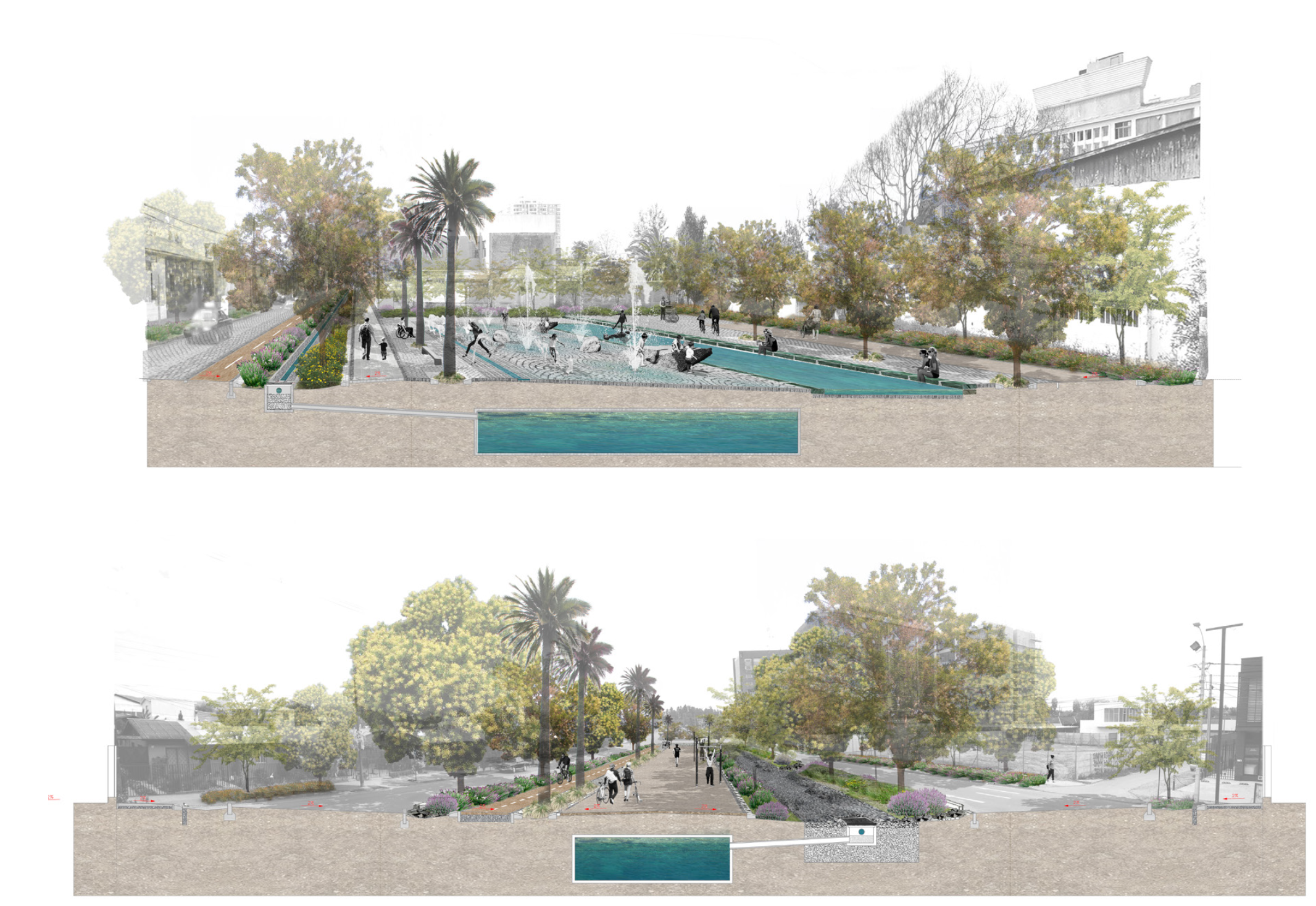
The Water Line. Landscape Infrastructure for Water Extremes
Landscape as Infrastructure for Risk Reduction and Urban Resilience to Natural Disasters
Pontificia Universidad Católica de Chile
Chile is currently going through one of the largest water crises in history, and due to Climate Change it is predicted that this crisis will increase, intensifying extreme hydrological events: floods and droughts. Every day, our rainwater is evacuated through closed pipes that are full of urban pollutants, instead of being used to irrigate gardens and groves as nature itself has taught us in the gorges of its mountains. The challenge is to take the principles of nature and integrate them into our cities, transforming the crisis into an opportunity. Following this principles, this project — located in Talca — demonstrates that the water balance of a city can be recovered through a water-sensitive design.
This green infrastructure proposal for the city of Talca is highly resilient to floods, incorporating sustainable drainage systems on its streets, squares and parks. This infrastructure takes advantage of rainwater to mitigate drought, recharging its aquifers through infiltration systems, and establishing storage points that allow to manage the vital resource in the driest periods. This would allow maintaining an interconnected network of green spaces that are support for various human activities, also offering a multitude of ecosystem services that improve the environmental quality of the entire city.
